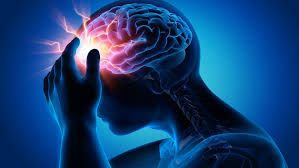Treatment for a concussion depends on the severity of your symptoms. A patient suffering from concussion might need surgery or other medical procedures if he or she experiences, bleeding in the brain, swelling of the brain or a serious injury to the brain. However, most concussions don’t require surgery or any major medical treatment.
If the concussion is causing headaches, then the doctor may recommend over-the-counter pain relievers such as ibuprofen (Advil) or acetaminophen (Tylenol). Your doctor will also probably ask you to get plenty of rest, avoid sports and other strenuous activities, and avoid driving a vehicle or riding a bike for 24 hours or even a few months, depending on the severity of your injury.
Physiotherapy treatment: After a thorough concussion assessment that includes several concussion tests, a physiotherapist can differentiate the various causes of symptoms. Implementation of a treatment plan for concussion management would then follow, with a specialized focus on different symptom areas.
Cervical spine issues after a concussion
If the neck or spine has been affected by the concussion an injury, a physiotherapist can help with:
- Strengthening neck muscles
- Manual therapy to ensure the joints are moving well
- Myofascial release techniques to ensure good mobility of the surrounding soft tissue
- Vestibular issues after a concussion
Vestibular problems involving dizziness or imbalance can be helped with:
- Balance training
- Canalith repositioning maneuver (a head maneuver to move the ear crystals to an area of your inner ear that eases dizziness)
- Visual disturbances after a concussion
If vision is affected after a concussion, ocular reflex training can prescribe to improve visual motor control to reduce visual disturbances.
Exertion issues after a concussion
If exertion is a problem, exercise prescriptions should be part of a concussion management plan, with incremental progression of individually tailored exercises


